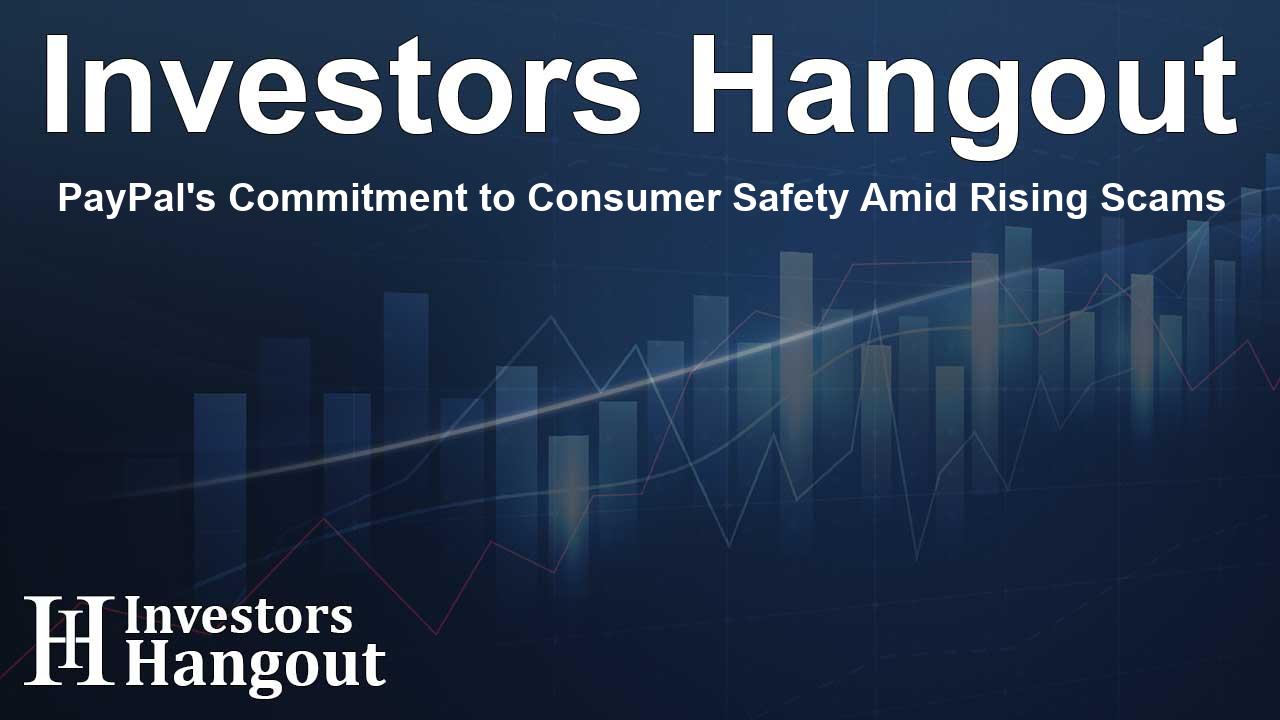PayPal's Commitment to Consumer Safety Amid Rising Scams

PayPal Raises Awareness About Phishing Scams
In the spirit of National Cybersecurity Awareness Month, PayPal Holdings, Inc. (NASDAQ: PYPL) is taking significant steps to inform consumers about the dangers of phishing scams. These malicious schemes are designed to trick individuals into revealing personal information and making unauthorized transactions. PayPal, as a leader in customer protection, emphasizes the importance of education and vigilance in combating these evolving threats.
Understanding Phishing Scams
Phishing scams can take several forms. Scammers often impersonate trusted companies or public figures, utilizing social engineering techniques to manipulate their targets. They typically use unsolicited messages via emails, phone calls, texts, or social media, urging recipients to click links, send money or provide sensitive information. The key tactic here is deception—creating a false sense of urgency that can lure even cautious individuals into a trap.
Identifying Phishing Attempts
Recognizing phishing attempts is crucial for protection. Here are some common signs to watch out for:
- Suspicious Links: Always hover over links to verify their authenticity before clicking. Check for misspellings or unusual domain names.
- Unexpected Messages: If you receive unprovoked messages demanding immediate action, be skeptical. Legitimate organizations typically do not operate this way.
- Unusual Tone: Pay close attention to the language used in messages. Scammers often employ an urgent or threatening tone to create panic.
- Attachment Caution: Never download attachments from unknown sources, as they often contain malware.
Essential Tips for Consumers
At PayPal, we advise consumers to adopt preventative practices. Here are several strategies to enhance personal safety:
- Trust Your Instincts: If something feels off, it probably is. Take a step back and assess the situation carefully.
- Verify Sender Details: Always check the sender's full email address and avoid trusting just the display name.
- Stay Unresponsive: Do not reply to unsolicited requests for personal information. Scammers can fake caller IDs and email addresses.
- Report Suspicious Activity: If you receive a phishing email, report it to the affected brand and delete it immediately.
- Utilize Security Measures: Enable two-factor authentication on all accounts that involve sensitive information for an added layer of security.
What PayPal Offers to Protect You
PayPal is dedicated to fostering a secure environment for users. Our enhanced fraud prevention measures include innovative technologies and crime detection strategies. Here’s how PayPal is safeguarding consumers:
- Authentic Communications: Look for the checkmark beside PayPal's logo in emails to verify legitimacy. This feature helps eliminate confusion about the authenticity of communications.
- Reporting Scams: If you suspect a phishing attempt, report it to PayPal's customer service. Prompt action helps mitigate risks to others.
- Support Accessibility: Reach out to us directly through our official channels for assistance and avoid third-party sites.
Collaborative Consumer Protection Efforts
PayPal collaborates with several organizations to enhance consumer education and protection against fraud. Our partnerships with various consumer protection institutions demonstrate our commitment to staying ahead of fraudulent scams. By investing in education and innovation in security practices, we strive to create a protected space for all users engaging in transactions on our platforms.
PayPal's mission involves continuous improvement in detecting and preventing fraud. With a commitment to consumer safety, we are enhancing our technologies and methodologies each day, enabling users to feel secure while using our services.
Frequently Asked Questions
1. What is a phishing scam?
A phishing scam is a fraudulent attempt to steal personal information through deceptive communications that impersonate legitimate organizations.
2. How can I recognize a phishing attempt?
Watch for suspicious links, unexpected messages, unusual tonality, and unknown attachments to identify phishing scams.
3. What actions should I take if I receive a phishing email?
Report the email to the brand being impersonated and delete the message. Do not engage with the sender.
4. How does PayPal help protect against fraud?
PayPal employs advanced detection technologies, offers user education, and actively monitors for any suspicious activity to protect its users.
5. Is two-factor authentication necessary?
Yes, enabling two-factor authentication significantly increases your account's security and reduces the risk of unauthorized access.
About The Author
Contact Thomas Cooper privately here. Or send an email with ATTN: Thomas Cooper as the subject to contact@investorshangout.com.
About Investors Hangout
Investors Hangout is a leading online stock forum for financial discussion and learning, offering a wide range of free tools and resources. It draws in traders of all levels, who exchange market knowledge, investigate trading tactics, and keep an eye on industry developments in real time. Featuring financial articles, stock message boards, quotes, charts, company profiles, and live news updates. Through cooperative learning and a wealth of informational resources, it helps users from novices creating their first portfolios to experts honing their techniques. Join Investors Hangout today: https://investorshangout.com/
The content of this article is based on factual, publicly available information and does not represent legal, financial, or investment advice. Investors Hangout does not offer financial advice, and the author is not a licensed financial advisor. Consult a qualified advisor before making any financial or investment decisions based on this article. This article should not be considered advice to purchase, sell, or hold any securities or other investments. If any of the material provided here is inaccurate, please contact us for corrections.
